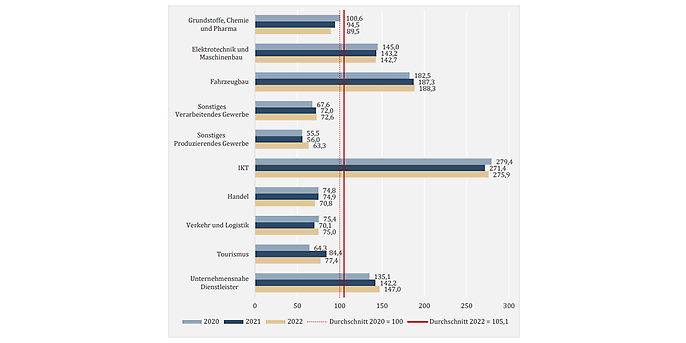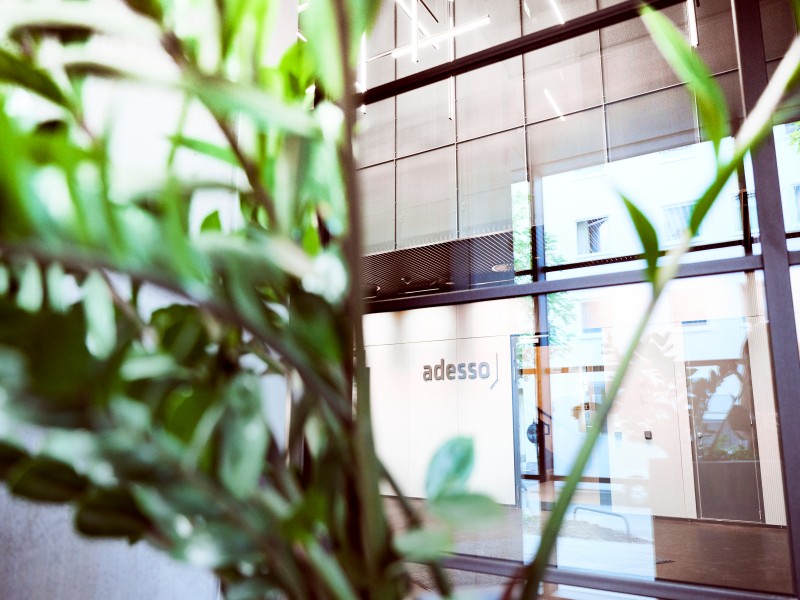3. October 2023 By Julia Jäkel
Challenges and opportunities presented by digitalisation in the waste management industry
Often referred to as ‘other industry’, this industrial sector, which includes energy and water suppliers, wastewater and waste management companies, and construction firms, has experienced the largest growth in digitalisation. Nevertheless, the sector ranks at the bottom of the list. This is among the findings from a study by the German Federal Ministry for Economic Affairs and Climate Action in 2022. However, the call to conserve resources and assist efforts to achieve climate targets applies to all industries – and digitalisation can support these efforts. The focus of my blog post is on the waste management sector that affects each of our lives every day and on the challenges and opportunities presented by digitalisation in the industry.
Utilities are generally classified as public services. The Line of Business Utilities at adesso focuses on the energy supply. This is because the energy sector is a critical industry that makes the biggest contribution to digitalisation due to high investments, regulatory requirements and standards as well as other economic factors. Within the broad scope of this industry, however, waste management plays a relatively minor role. As I already mentioned above, sustainable action to achieve the climate goals is not only required to save energy but also to conserve resources in general. This is why it is also important to drive digitalisation in the waste management industry. Here as everywhere, there are challenges to overcome and opportunities to be had.

Scored results from the Digitalisation Index by sector; survey years 2020, 2021 and 2022; source: https://www.iwkoeln.de/studien/jan-buechel-barbara-engels-status-quo-und-use-cases-in-deutschland.html
1. The challenge: complexity of the technology
The digitalisation of the waste management industry requires the use of various technologies such as the Internet of Things (IoT), big data analytics, artificial intelligence and blockchain. Integrating these technologies into existing systems and processes can be difficult and requires special technical expertise. According to the Digitalisation Index 2022, small and medium-sized enterprises often do not have the internal resources or expertise required to efficiently use these technologies.
2. The challenge: standardisation and interoperability
The waste management sector involves a large number of stakeholders, including recycling and disposal companies, public authorities and customers. Standardisation and the interoperability of systems and data are vital in order to fully exploit the benefits brought by digitalisation. They are necessary in order to ensure the seamless exchange of information and effective cooperation between the various stakeholders. However, it is difficult to develop common standards and create interoperable solutions, a task that takes a lot of time and requires a collaborative effort. The use of the AvaL communication standard, which covers the exchange of order-related performance data, is intended to remedy this situation in the future. The aim is to reduce gaps in information and minimise the number of inefficient processes used in waste management that pose an obstacle to companies in the sector.
3. The challenge: data security and data protection
The many different stakeholders in the waste management industry generate large amounts of data that needs to be collected, analysed and shared. It is vital that the data is secure and protected to prevent misuse and data breaches. Companies need to adopt effective safeguards and ensure that data is handled in accordance with applicable data protection regulations.
4. The challenge: acceptance and a willingness to change
When a digital solution is rolled out, we often need to change the way we work, which can be met with resistance. In many cases, small and medium-sized enterprises have long-established work practices and can be wary of making changes to their processes and workflows. It is important to tell companies about the benefits of digitalisation and have them play an active role in the implementation process. Training and measures to raise awareness can help to foster acceptance and a willingness to change.
5. The challenge: education and training
The digitalisation of waste management requires a certain level of education and training in order for employees to effectively use the new technologies. Small and medium-sized enterprises may not have the resources to provide the training their staff require or bring in outside experts. It is important to develop training programmes and educational initiatives to provide staff with the knowledge and skills they need. As part of initial efforts in this area, the German Federal Ministry for Economic Affairs and Climate Action provided funding for the Mittelstand-Digital network project and the newly established centres of excellence. The latter are ‘professional, vendor-neutral hubs that provide information, raise awareness and offer certification. They are a place where SMEs and small craft businesses can share ideas and learn about the benefits of digitalisation through real-life examples, demonstrators and information events.’
6. The challenge: integration into existing systems
Integrating new technologies into existing systems and processes can also be a challenge in digitalisation projects. This can present a number of issues, especially if companies do not use state-of-the-art systems and equipment. Careful planning and, in some cases, support from IT experts are needed to seamlessly integrate new technologies. Approaches like retrofitting, which involves upgrading existing machinery through the installation of modern sensors or communication technology, are a cost-effective way to make an initial foray into the digital world.
7. The challenge: sustainability and environmental impact
When digitalising waste management, it is important to consider sustainability and the environmental impact. The use of digital solutions is designed to assist efforts to conserve resources and reduce pollution. It requires that you take a careful approach to selecting technologies, assess their environmental impact and change your mindset away from waste management towards closed-loop recycling. The problem is that uniform, binding standards and platforms that guarantee transparency do not exist yet. One solution available today is to introduce a digital product passport (DPP), which, however, is not mandatory at this time. The goal of DPP is to overcome the lack of transparency along the entire value chain. To create an efficient circular economy, it is important to know where waste comes from, what materials it contains and how it can best be reused or recycled. A digital solution like DPP, which provides for full traceability, could be a useful tool here.
Conclusion
As we have all seen, digitalisation has made inroads across all sectors in recent years, including in the waste management industry. The rollout of digital technologies and solutions represents a great opportunity to make more efficient use of resources, improve process transparency and achieve greater sustainability in waste management. However, companies and public authorities face a number of challenges, including the complexity of the technology, data security, standardisation and the general willingness of people to change their behaviour. These challenges must be overcome in order to tap the potential that digitalisation has to offer. Despite the many challenges, the digitalisation of waste management also opens up opportunities, and there are solutions and partial solutions available now for many stakeholders. Beyond establishing communication standards and legal obligations to provide supporting documentation, there are many other promising and forward-looking solutions to take advantage of these opportunities. These include:
- Use of cloud technologies: Use sensors installed on refuse bins to monitor how full they are in real time and utilise this data to optimise collection routes and reduce empty runs and emissions.
- Big data analytics: Identify patterns and trends in waste generation and optimise waste disposal processes.
- Blockchain technology: Improve the transparency and traceability of waste streams.
- Artificial intelligence: Support separation of waste and recycling through automatic detection and sorting of materials.
- Retrofits (field gateways, etc.): The transfer of data from machines can help foster more effective and sustainable use of equipment and lays the foundation for more efficient use of resources and predictive maintenance.
It is important to face up to the challenges, take advantage of the opportunities that are presented and provide the necessary government support to ensure that all stakeholders can reap the benefits of digitalisation. Effective digitalisation enables the waste management sector to make a vital contribution to achieving the climate targets.
Is this a topic that interests you? Or do you have a concept for a product or project that we could help you build out with our portfolio of services?
You can find more exciting topics from the adesso world in our blog articles published so far.
Also interessting:

